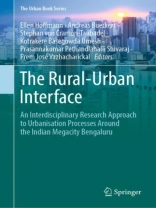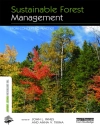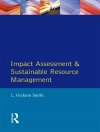Bengaluru is one of the fastest growing megacities in India. As such, it provides an in-situ laboratory for studying rural-urban transitions. While urbanization is most evident in the changing landscape with increasing built-up areas, it comes along with changes in ecosystem functions, new economic opportunities, changes in social organization and individual attitudes and behavior. All of these processes are interlinked and mutually depend on each other. This book attempts to integrate studies from a wide scope of disciplinary perspectives and at different spatial scales under the framework of complex social-ecological systems.
Agriculture is the prime example of a system in which humans interact with their biophysical environment, and the production systems in the rural-urban interface are profoundly affected by urbanisation. Intensification and diversification of agriculture are immediate responses to urban pressures and demands, and are linked as much to resource (over-)use as to commercialisation. Yet, little is known about the spatial patterns of agricultural transformation in areas of urban sprawl.
The focus of the contributions here is explicitly on the interface, in-between the rural and urban systems. It thus differs from the urban-centered perspective of city planners as well as from the rural predominance in most of the agricultural research. In the present volume this focus is implemented by analysing samples along a spatial gradient representing different stages of urbanization. Ongoing time series analyses and a panel study will complement the spatial approach by a temporal dimension.
Inhoudsopgave
Part I: Introduction.- The rural-urban interface – An interdisciplinary research approach to urbanisation processes around the Indian megacity Bengaluru.- Part II: Changing patterns of land use and agriculture.- Temporal dynamics of land use change and spatial urbanization indices in the rural-urban interface of Bengaluru over the past three decades.- Urbanization effects on agricultural production systems across the rural-urban interface of Bengaluru.- Changes in land use pattern vis-a-vis urbanization and credit across the rural-urban interface of Bengaluru.- Dairy Production in an urbanizing environment: A social-ecological approach to understand the case of Bengaluru.- Capital formation across the rural-urban interface of Bengaluru North: An economic analysis.- Part III: Resource use, efficiencies and tradeoffs in crop and livestock production.- Crop production under urbanisation: An experimental approach to understand and model agricultural intensification.- Effects of soil management practices on soil physical properties and water cycle in a multifactorial field experiment.- Biomass estimation of vegetables – Can remote sensing be a tool for it?- Dairy farms in an urbanising environment: Tradeoffs between productivity and animal welfare.- Part IV: Food systems as outcomes and drivers of rural-urban transitions.- Crop diversity, dietary diversity and nutritional intake: Evidence on inter-linkages across rural-urban interface of Bengaluru.- Food security and factors influencing food and calorie intake across rural-urban interface of Bengaluru.- Nutritional status of households and individuals in the rural-urban interface of Bengaluru.- Nutritional status of women across rural-urban interface of Bengaluru.- “Homemade food is always healthy”: The ambivalence of a traditionalisation of diets in Bengaluru.- Part V: Biodiversity and ecosystem functions under rural-urban transitions.- Tree species diversity in the Southern transect across the rural-urban interfaceof Bengaluru.- Biodiversity of birds along the rural-urban interface of the Indian megacity Bengaluru.- Bee diversity in the rural-urban interface of Bengaluru and scope for pollinator-integrated urban agriculture.- Dynamics of field margin vegetation with changing agricultural landscape across a rural-urban interface.- Part VI: Conclusion. Editorial: Dynamics in the rural-urban interface of an Indian megacity – Synopsis and outlook.












